MetroFabLab
Architecture, urban planning, urban development, design, political sciences

This project aims to prepare students through (and for) research of new conditions of metropolitan construction in a context of fast changes, transitions and societal transformations. As it is interdisciplinary and multi-scalar, our project
relies on the knowledge and practices of architecture, urban and spatial planning, design, political sciences, geography and economic sciences.
This project aims to prepare students through (and for) research of new conditions of metropolitan construction in a context of fast changes, transitions and societal transformations. Considering ecological, but also social, economic and political challenges and requirements, we have a current need to renew the frameworks of analysis and the conceptual and methodological approaches to better understand the dynamics currently at play, to clarify and even objectify debates and to better accompany actions within such deep changes. As it is interdisciplinary and multi-scalar, our project relies on the knowledge and practices of architecture, urban and spatial planning, design, political sciences, geography and economic sciences. This thematic program benefits from the scientific excellence of Grenoble's laboratories. It is based on current research programs and is built in dialogue with local stakeholders. Its ambition is to train researchers and managers who are sensitive to future challenges in architecture, urban planning, design and public policy design. We support students from the time they arrive at the Master's level until they enter the workforce. This Graduate School theme is open to all students in the Master's programs in architecture, urban planning, design and political sciences.
To apply to this programme, you must first be admitted to the first year of a Master's programme in one of the following courses:
The aim of this first seminar is to help students identify a research theme, its currents and controversies, and the appropriate bibliography. At the end of the semester, students will be asked to produce a problematized reading note, which they will defend during a presentation.
Metro Fab Lab 2 seminar. M1 S8 (3ECTS)
This second seminar aims to help students identify the methods and methodologies at work in the fields of urban planning, architecture and political science. At the end of the semester, students will be asked to produce a problematized reading note, which they will defend during a presentation.
Metro Fab Lab 3 seminar. M2 S9 (3ECTS)
This third seminar is designed to help students write the methodological and problematic sections, as well as the literature review, of a scientific article. At the end of the semester, students will be asked to produce a first version of their scientific article, which they will defend during a presentation.
Metro Fab Lab 4 seminar M2 S10 (3ECTS)
The aim of this fourth seminar is to help students write the sections devoted to the presentation of the case study(s) and their discussion in the light of the results obtained, as well as the conclusion of a scientific article. At the end of the semester, students will produce a finalized version of their scientific article, which they will defend during a presentation.
How to apply
The courses are mainly in French, some sessions will be in English.To apply to this programme, you must first be admitted to the first year of a Master's programme in one of the following courses:
| Master's degree | Year | Academic Unit | Langue |
|---|---|---|---|
| Architecture, urbanisme, études politiques (AUEP) | M1 - M2 | ENSAG, IUGA, Sciences Po UGA | French |
| Urbanisme et Projet Urbain (UPU) | M1 - M2 | IUGA | French |
| Diplôme d’état d’Architecte parcours : Architecture, Villes, Ressources | M1 - M2 | ENSAG UGA | French |
| Diplôme d’état d’architecte, parcours : Architecture, Environnement et Cultures constructives | M1 - M2 | ENSAG UGA | French |
| Diplôme d’état d’architecte, parcours : AEdification, grands territoires, villes | M1 - M2 | ENSAG UGA | French |
| Diplôme d’état d’architecte, parcours : Les pensées du projet | M1 - M2 | ENSAG UGA | French |
| Diplôme d’état d’architecte, parcours : Architecture, Ambiances et Cultures numériques | M1 - M2 | ENSAG UGA | French |
| Diplôme d’état d’architecte, parcours Montagnes, Architecture et Paysage | M1 - M2 | ENSAG UGA | French |
| Design, parcours Design, résilience, habiter | M1 - M2 | ENSAG UGA | French |
Specific courses for this thematic programme
The seminars of the "Metropolitan Fabrics" thematic program of the Graduate School will progressively deliver throughout the four semesters of the Master's program the fundamentals of scientific work and its valorization (oral communication and writing a scientific article). These seminars will be punctuated by four public lectures per year. The seminars will be supervised every six months by pairs of teacher-researchers and guests from the worlds of research and the metropolitan fabric.
Metro Fab Lab Seminar 1. M1 S7 (3ECTS)The aim of this first seminar is to help students identify a research theme, its currents and controversies, and the appropriate bibliography. At the end of the semester, students will be asked to produce a problematized reading note, which they will defend during a presentation.
Metro Fab Lab 2 seminar. M1 S8 (3ECTS)
This second seminar aims to help students identify the methods and methodologies at work in the fields of urban planning, architecture and political science. At the end of the semester, students will be asked to produce a problematized reading note, which they will defend during a presentation.
Metro Fab Lab 3 seminar. M2 S9 (3ECTS)
This third seminar is designed to help students write the methodological and problematic sections, as well as the literature review, of a scientific article. At the end of the semester, students will be asked to produce a first version of their scientific article, which they will defend during a presentation.
Metro Fab Lab 4 seminar M2 S10 (3ECTS)
The aim of this fourth seminar is to help students write the sections devoted to the presentation of the case study(s) and their discussion in the light of the results obtained, as well as the conclusion of a scientific article. At the end of the semester, students will produce a finalized version of their scientific article, which they will defend during a presentation.
Doctoral schools involved
- École doctorale sciences de l'Homme, du politique et du territoire
Updated on April 25, 2025

